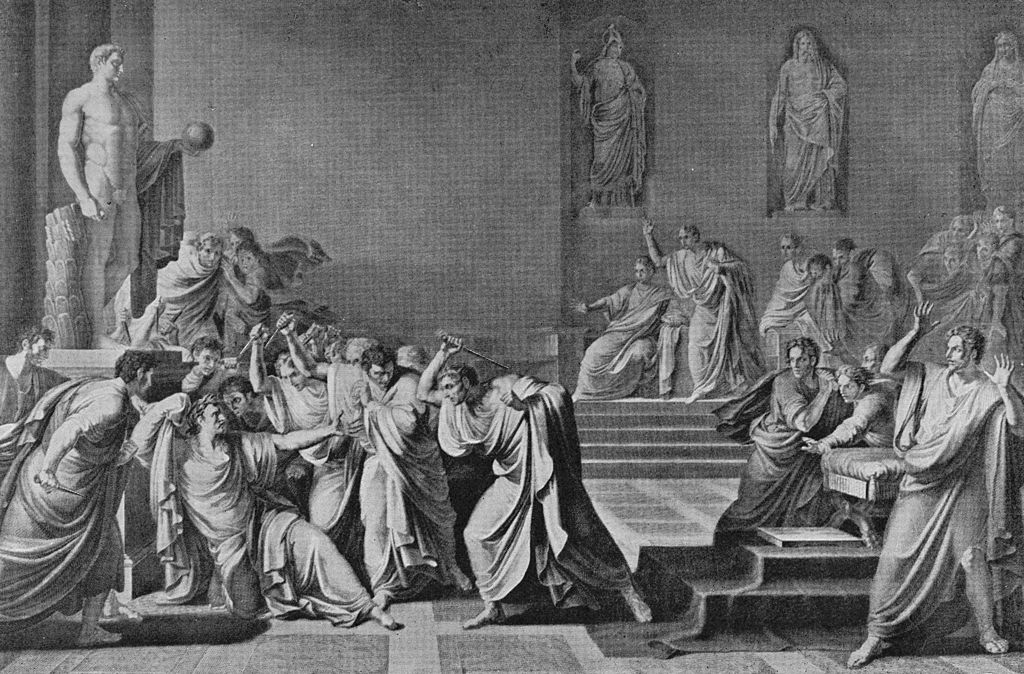
Donald Trump’s unleashing of an armed mob on the Capitol to overturn an election on January 6, 2021 was a stark warning of the fragility of democracy. And there have been other signs of strain. At a rally outside the Supreme Court in March of 2020, then Senate Minority Leader Chuck Schumer warned Justices Neil Gorsuch and Brett Kavanaugh, “You have released the whirlwind and you will pay the price,” earning a rebuke from Chief Justice Roberts. Faced with gridlock in the Congress in summer of 2022, Senator Sheldon Whitehouse called for “executive Beast Mode.”
Even after a midterm election that went better than expected, many Americans are worried about the future, even the survival, of democratic government. They are right to be, as a look at the fate of one of history’s most famous republics shows. A little over two millennia ago, the Romans, after defeating all their major rivals in war, succumbed to internal warfare. The demise of the Roman Republic shows the perils of extreme partisanship—and its logic.
In the Republic’s last decades, the Romans faced challenges that resonate today. Unenfranchised Italians clamored for the vote. The city of Rome, with a population of perhaps 1,000,000, exposed to fires, floods, and grain shortages, desperately needed better services. There was also an ongoing dispute over where political power should rest: in the Senate of several hundred lifelong members or the far more democratic Plebeian Assembly.
Two of the most capable politicians Rome ever produced came onto the scene at the same time, which paradoxically made matters worse. One was Julius Caesar, a stylish dresser who could turn out such memorable phrases as “I came, I saw, I conquered.” Caesar rose to power championing ordinary Romans and then launched a war of conquest in Gaul (modern France), as bloody as it was profitable. The other major talent was Cato the Younger, a far more austere character who walked around Rome in a rough old toga from which he pulled out scrolls of Stoic philosophy. Cato crusaded against the money, squeezed out of Rome’s provincial subjects, that sloshed through politics. For him, the Senate was the bulwark against politicians like Caesar from acquiring too much power.
With their different visions for Rome, both politicians attracted followings, and the remorseless logic of polarization set in. Caesar wanted to pass a bill distributing land to citizens and had the votes. To stop him, Cato turned to obstructive techniques such as the filibuster, which became his signature move. Caesar had Cato and his allies physically removed from a voting assembly. The Catonians denied the legitimacy of the ensuing vote. In ongoing struggles like this, each side responded to the other by increasingly devastating strategies. Partisanship became a chain reaction. As political norms and institutions weakened, future clashes became seemingly inevitable. The feud of Cato, Caesar, and their respective allies finally led to a civil war, at the end of which terrorized Romans had to accept autocracy.
More from TIME
For all the differences with Rome, we see the same ravages of partisanship in the U.S. today. A clear example is the Supreme Court nomination process, in which each party, to varying degrees, acts for its advantage but in the process has thrown the legitimacy of the Court into question.
As historian Edward Watts has shown, it has almost always been fashionable to invoke the “fall of Rome” as a dreadful warning. This tendency obscures a key part of Roman history that is also worth reflecting on: the ability to compromise. The Roman world was one of shocking inequality and brutality but, over its centuries-long existence, the Republic did manage to incorporate new groups and come up with a more expansive view of citizenship than other ancient states.
Even in what would turn out to be the last few years of the free Republic, the political class worked out a novel compromise to bring peace to the city after months of violence, in which elections were suspended. The civil war that finally broke out between Julius Caesar and his enemies could have been prevented, and a number of politicians, as well as thousands of ordinary citizens, had a desire for compromise and ideas on how to make that happen.
Roman history cannot tell us exactly what to do now. History is always unfolding. But from the Romans we can take warning and also encouragement. Americans must not become totally paralyzed with fear. Doomsaying and denunciation can only go so far. In our moment of crisis, politicians need to offer an inspiring vision of peaceful self-government and compromise where they can. And we must reward those who do.
More Must-Reads from TIME
- Donald Trump Is TIME's 2024 Person of the Year
- Why We Chose Trump as Person of the Year
- Is Intermittent Fasting Good or Bad for You?
- The 100 Must-Read Books of 2024
- The 20 Best Christmas TV Episodes
- Column: If Optimism Feels Ridiculous Now, Try Hope
- The Future of Climate Action Is Trade Policy
- Merle Bombardieri Is Helping People Make the Baby Decision
Contact us at letters@time.com